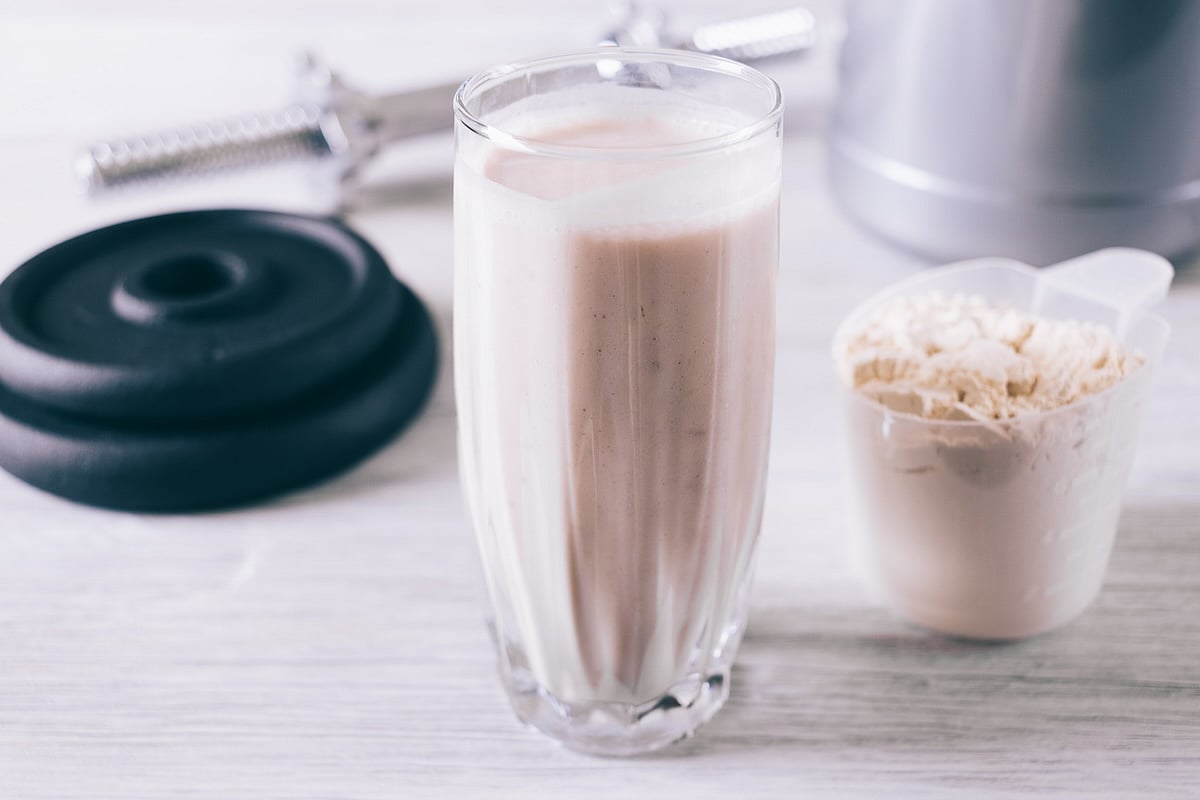Get Healthy!

- India Edwards
- Posted January 20, 2025
Is Your Protein Powder Safe? Report Reveals High Heavy Metal Levels
It turns out, your protein powder might not be as healthy as you think.
A new report from the Clean Label Project reveals that popular protein powders -- especially plant-based, organic and chocolate-flavored varieties -- may contain high levels of lead and cadmium.
The report highlights an alarming finding: Nearly half (47%) of the 160 products tested exceeded California’s Proposition 65 regulatory limits for lead, with 21% containing levels more than twice as high as those allowed under the law.
“Heavy metal contaminant is a global food safety problem,” Jackie Bowen, executive director of the Clean Label Project, told CNN.
“These contaminants are basically everywhere, including in things that are being represented as health foods,” she added.
An industry group, the Council for Responsible Nutrition, questioned the study's methodology and findings.
The investigation revealed that:
Plant-based powders, like those made from soy, rice and peas, contained three times more lead than products based on whey, a byproduct of cheesemaking.
Organic powders had three times more lead and twice as much cadmium compared to non-organic powders.
Chocolate-flavored powders had four times more lead and up to 110 times more cadmium than vanilla-flavored powders.
Plants naturally absorb heavy metals from soil and water, but contamination can be worse if they are grown in soil further tainted by industrial waste, mining and certain pesticides and fertilizers.
Dark chocolate, known for its rich flavonoids and antioxidants, is also prone to higher levels of heavy metals, including lead and cadmium.
For the report, Clean Label Project researchers purchased protein powders from 70 popular brands and ran nearly 36,000 tests for contaminants, including heavy metals and hormone disruptors like bisphenol A (BPA). Specific brands were not named.
“We do not disclose the names of companies we test in order to maintain fairness and consistency and to avoid potential conflicts of interest,” Bowen said.
Some good news: BPA and its cousin, bisphenol S (BPS), were found in just three of the 160 powders tested, compared to 55% of products analyzed in a 2018 Clean Label Project report.
The Council for Responsible Nutrition, which represents many supplement manufacturers, said the new study lacked transparency about how contamination thresholds were set and which products were tested.
"Modern analytical techniques can detect even trace levels of naturally occurring elements, such as heavy metals, which are present in soil, air, and water," Andrea Wong, a senior vice president for the council, told CNN. "These trace levels are often well below established safety thresholds set by federal agencies like the Food and Drug Administration (FDA) and the Environmental Protection Agency (EPA)."
There is no level of lead that is safe for humans, according to the EPA. Cadmium is a cancer-causing agent that is also toxic to human organs, according to the U.S. Occupational Safety and Health Administration.
Bowen emphasized that it's not necessary to avoid protein powders entirely, but making smarter choices can minimize exposure to harmful contaminants.
“For people following a fully plant-based diet, protein powders made from peas appear to have the lowest levels of heavy metals,” Bowen said. “If you don’t have any dietary restrictions, the data suggests that whey-based or egg-based, vanilla-flavored protein powders will have the least amount.”
She also encouraged consumers to reach out to brands and inquire about their contaminant testing practices.
“Ask questions, demand answers,” Bowen concluded. “The topic of heavy metals isn’t going away.”
More information
The American Heart Association has more on plant-based protein.
SOURCE: Clean Label Project, report, Jan. 9, 2025; CNN


